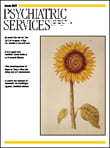Letter
In Reply: Dr. Corrigan's comments on our review of literature about "difficult patients" offer us the opportunity to clarify our view on the delicate matter of stigmatizing. We agree with Dr. Corrigan that the term "difficult" can be pejorative and even dangerous, so we used the term in quotation marks in our article. Nevertheless, it is a commonly and heavily used word in daily practice that lacks a clear meaning. Its connotation, however, is less clouded: the patient is judged negatively because he or she is far from an ideal patient.
By reviewing the literature on "difficult patients," we tried to shed light on unspoken judgments that are so prominent among mental health professionals. In doing so, we highlighted different points of view, and individual characteristics of the patient were the basis of only one viewpoint. Interpersonal and systemic explanations for labeling patients as difficult were reviewed in at least as much detail. Moreover, in our discussion we stated that a "difficult" patient easily becomes a "bad" patient in the minds of mental health professionals, which often worsens the care or treatment offered. Here we also agree with Dr. Corrigan in that this name calling leads to further stigmatization of patients, who are solely blamed for a difficult relationship between them and mental health care.
Yet we believe that frankly speaking about "difficult patients" does more good than keeping quiet about them. By carefully investigating the meaning of "difficult," we hope to have contributed to the discussion about patients who are not perceived positively by professionals. More sophisticated and accurate descriptions of the difficulties may then be incorporated, which we hope will result in acknowledging problems instead of denying them for fear of stigmatizing these patients.



